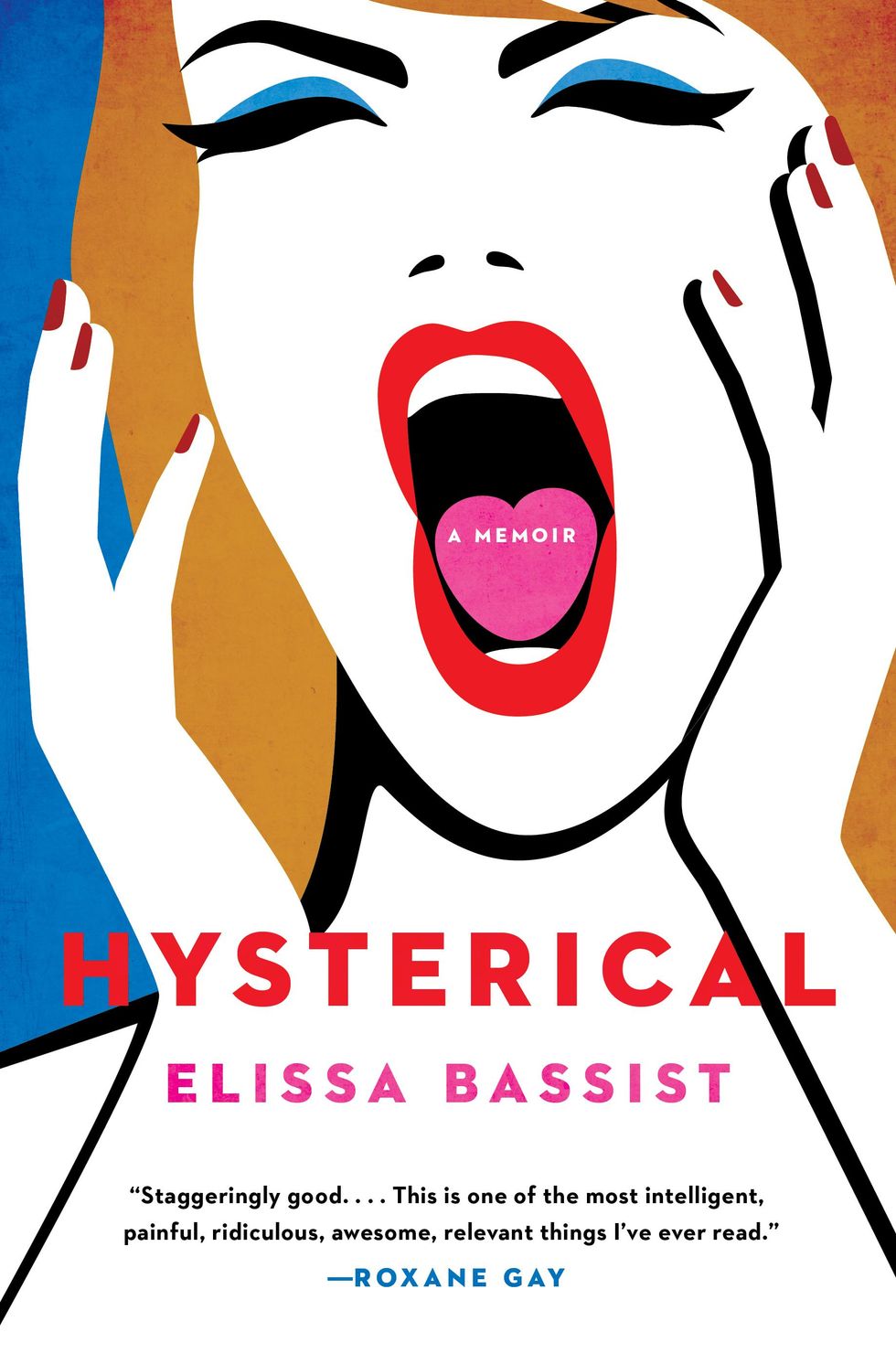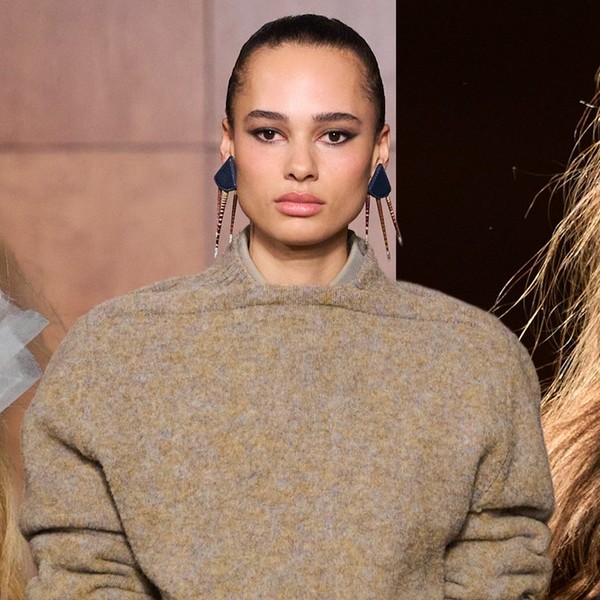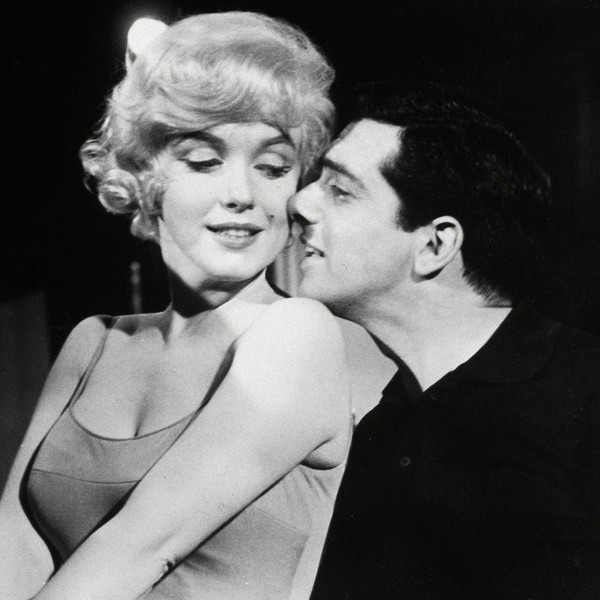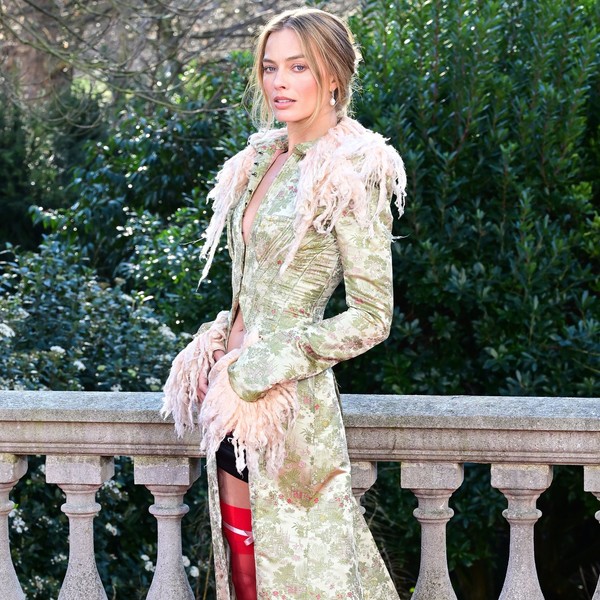Elissa Bassist on Writing a Memoir, Harnessing Her Anger, and Finding Her Voice
The author of ‘Hysterical’ weaves comedy into more serious topics.
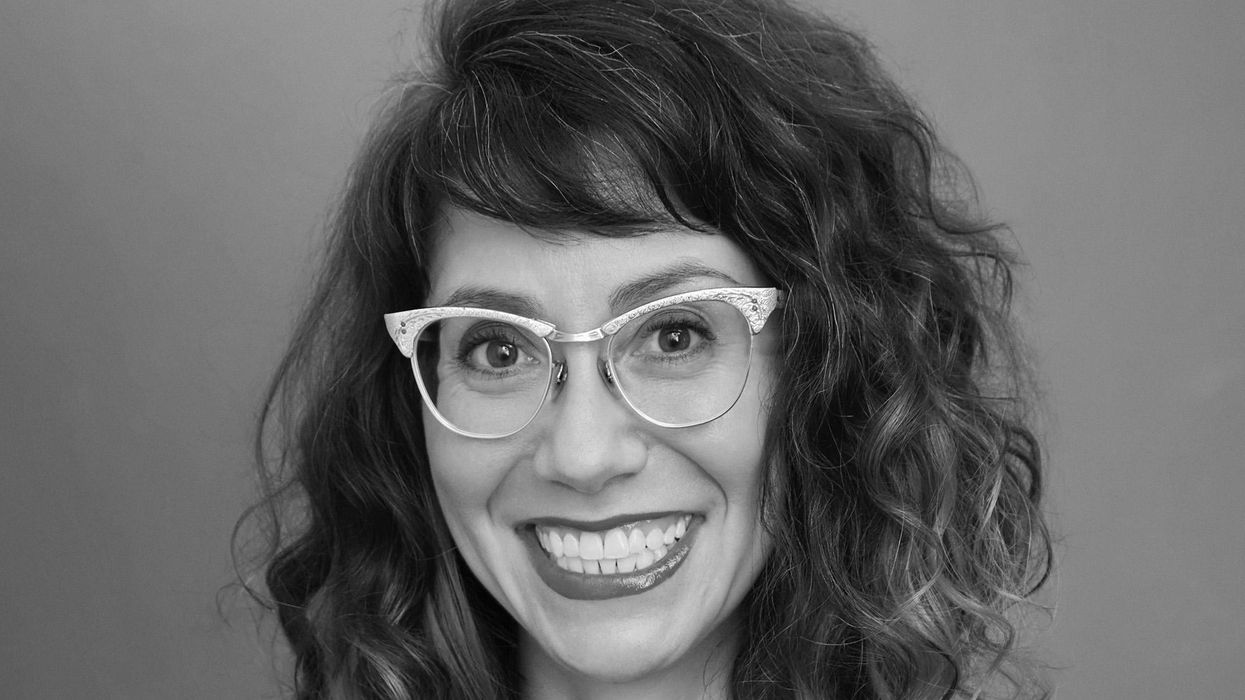
Writer Elissa Bassist, 38, first gained widespread recognition in an unconventional manner—by signing a letter she wrote to an online advice columnist in 2010 using her real name. That columnist went by the pen name “Sugar,” though in actuality it was Cheryl Strayed, who in 2012 would skyrocket to fame with the publication of her bestselling memoir, Wild: From Lost to Found on the Pacific Crest Trail. The same year, Strayed published Tiny Beautiful Things: Advice on Love and Life from Dear Sugar, another bestselling book containing many of the “Dear Sugar” columns she had published on the literary website The Rumpus. Among the pieces in the collection is Bassist’s letter to Strayed—a distressed plea for advice on how to succeed as a writer along with Strayed’s response, fittingly titled, “Write Like a Motherfucker.”
In the years since, Bassist has done just that. The longtime editor of The Rumpus's "Funny Women" column and author of numerous published essays, Bassist will see her debut book, a memoir titled Hysterical, publish on September 13 with Hachette Books. In the memoir, Bassist blends personal narrative with research as she tells the story of a mysterious set of physical ailments she suffered following the 2016 presidential election. After seeing more than 20 medical professionals, an acupuncturist posited that part of Bassist's physical pain could be tied to the suppression of her own anger—a theory that rang true and sparked a reckoning for Bassist with the family, community, and culture within which she grew up due to a long history of being silenced when attempting to express her own thoughts and emotions.
In advance of Hysterical’s publication, Coveteur sat down with Bassist to discuss everything from her journey as a writer to medical misdiagnoses to harmful gender norms to the sometimes painstaking but infinitely worthwhile process of finding your voice and learning to use it.
How would you say the content of your letter to Cheryl connects with the memoir you’re now publishing?
“At the time, [the letter] was the truest thing I’d ever written. I needed to write it. I needed it to be published and to be in conversation with such a compassionate genius mind like Cheryl’s, and the advice was truly helpful. I can’t read the letter now—that was a 26-year-old in the midst of a mental breakdown who had not found the right therapist or medication, and did not understand that her life was more important than her writing. I really had subscribed to the idea of the suffering artist. I thought one should want to die if one could not write a book. I was never taught to prioritize my life—I was always taught to prioritize my boyfriends and my boss and my work, my relationships, my homework. I was never taught about self-care. I was never taught about taking care of myself mentally, never encouraged to seek therapists, to seek help. It was the exact opposite, like I should be smart enough to know better. I believed that I couldn’t [write a book], and I love knowing now that you can be so wrong about yourself, and have no idea about your future, and no idea what you’re capable of.”
How did the idea for this book come about?
“When I wrote that letter [to Cheryl], I had this idea that I wanted to write a book, but I had no book-length ideas in me. I moved to New York to go to graduate school to help me figure out the book stuff. I wrote about what I was obsessed with, which at the time was my ex-boyfriends, David Foster Wallace, and how art makes us feel.
Over the years, I was trying to sell a book proposal and I kept writing and rewriting, proposal after proposal. After 11 years of that, finally the #MeToo movement happened, and a lot of what I had written was relevant, if not too relevant. I started thinking about all of the themes that I focused on. A lot of it was media obsession, obsession with art, obsession over why I was obsessed with boys and men and their opinions of me, and how I lived for them and lived to impress them, and how my voice had changed because of them, and how I silenced myself and how they silenced me. I was developing these themes of my life along with what was happening in the news and just seeing so many parallels.
Hysterical was based on an essay I wrote for Longreads called, ‘On Silence (Or, Speak Again)’ about things I had been thinking about over the years, which was this collision of media, how women are represented in media or misrepresented in media, and how that affected my own life and the lives of people around me and how they treated me.”
Your book highlights an appointment with an acupuncturist as being a turning point in your life in terms of recognizing a lot of repressed anger that was causing you physical pain. Could you talk about that revelation and what the road toward healing looked like from there?
“As with all my revelations, it didn’t hit until months, if not years, later. This was six months into my illness and at the time I had a headache and vision loss only. I remember during our intake, [the acupuncturist’s] first question was, ‘Are you angry?’ and I said ‘Yes’ immediately. I was not in touch with that anger on any conscious level. When she asked me who made me angry and I went down the list, she told me I would need to express that anger, and I was like, ‘I can’t do that.’ To tell my dad how I really felt seemed harder to me than dying—it just did not seem like an option to express my anger. But when I did what the acupuncturist said, when I did her talking cure and wrote this email to my dad, I felt relief for the first time in months. It felt like a balloon popping in a good way, or like air being let out of my head. That wasn’t ultimately what I needed to do—I needed to get off the medication I was on. I was having an allergic reaction to it and it was killing me. But the fact that I could feel so much relief from expressing myself while I was having an actual chemical apocalypse was endlessly fascinating to me.
I had to keep relearning that lesson over and over again. You’re not just healed in one go. I had to learn how to express myself, which I didn’t know until I was in OCD therapy, and my exposures were to say what I thought people didn’t want to hear. To be a good woman, a good girlfriend, a good girl, a good friend, a good employee, is to suppress emotion, pain, anger—your true thoughts, feelings, wants, and desires—and that’s what I was in the habit of doing my entire life.”
You also talk about various dating experiences. Can you discuss the role dating played in your mental health struggles and how your dating life changed through your process of healing?
“There is an apt metaphor: [men] were the chemical agent that caused this chemical reaction in me that, once applied to my psyche, it was just like a kaboom. When I was dating men, it was like I had every thought and feeling in the whole wide world at one time. At the same time, I felt like I couldn’t express any of it because that is unattractive, so that just contributed to a lot of repression and suppression and not being able to advocate for my needs, wants, and safety because it meant losing the attention and affection of a dude. I also tried to contort my personality into a woman who did not have mental health issues and who was chill and down and fun and not mad and not emotional, which of course made me very emotional and very mad. But I had to push it all down.
I didn’t know how to be myself in relationships. I got totally sucked into being my boyfriend’s girlfriend, and his mom, and his therapist, and his best friend, and his nurse, and his butler, and his secretary, and his cheerleader. Those were my new roles, it felt like. Certainly, I had positive experiences and felt loved and liked and it’s not even necessarily their fault—it was the cultural forces that told me this was what they wanted and how I should be, and it felt instinctual and natural. I did not know how to maintain my identity-personality-emotional state in relationships, it just totally eluded me, even though I was this outspoken feminist.
I still feel like I’m figuring it out and in my dating future it’s going to be challenging and new territory for me. I have to know that my emotions aren’t unattractive—my thoughts, feelings, wants, desires, and opinions aren’t unattractive—the fact that I prioritize my mental health and can talk about mental health and mental illness is not unattractive. And if they think it is then I don’t like them. I’ve always wanted them to like me and that’s always been the barometer. Now I’ve learned I can actually not like them for not liking me.”
What did finding your voice look like and how did doing so impact your physical health?
“It looked at the time like a practice that felt humiliating because we take it for granted that everybody knows how to say no. I started off with these really small exercises. ‘No’ was not even the beginning of it. The beginning was having typos in text and emails and in writing and letting the typos stay there, letting myself be imperfect on purpose—maybe I made a mistake, maybe I said it poorly, maybe people will judge me based on my error, and constantly agreeing to that fear. The more I agreed to it, the more I was retraining my fear system to not be afraid. Making a mistake will not get you killed. I always say to myself, when I’m afraid of being a bitch, ‘risk being a bitch, risk being perceived as a bitch.’ The more I do it, the better I feel. It feels good to say what I want to say.”
Despite the heaviness and seriousness of many topics covered in this book, you’ve also woven humor throughout. What role does humor play, in your view, as you address these complicated and important topics?
“I’ve always loved comedy. Growing up with television being my fifth parent, I feel like I was raised by Seinfeld and my entire sense of humor comes from Seinfeld. I was writing serious nonfiction in grad school and I was really bumming myself out and I was bumming out my readers. I started taking improv and sketch classes and everything I was learning in those classes was so applicable to writing and to living. I found that I could enjoy writing and make writing enjoyable to read when it was funny. A lot of situations are not funny, but there are things around them that are so absurd and so silly, and the only way to talk about them and to expose them is to make fun of them. As I was writing this book that has every imaginable dark topic in it, the only way I could survive writing it was to make myself laugh while I was writing it and to find that absurdity and use it. No situation is fully a tragedy or fully a comedy. I think it makes both easier to live with, more palatable to read, and easier to empathize with when you include levity in tragedy and when you include vulnerability in comedy. In my course description for “Tragedy Plus Time,” [a course I teach through Catapult, 92NY, and Lighthouse Writers Workshop], I say, ‘The goal is to make readers laugh while breaking their hearts. Happy endings will not be accepted.’”
Who are you most hoping to reach with the message of this book, and what impact do you hope it will have?
“Every woman who doesn’t feel like she can say what she’s thinking I hope will feel differently at the end of reading this book. I hope it emboldens more women to say ‘no’ when they’re thinking ‘no,’ and to act against cultural and personal expectation and to risk advocating for themselves at the expense of someone’s potential momentary discomfort—that they start to prioritize themselves more and recognize all of the cultural forces conspiring to silence them and that make them silence themselves by making them think what they have to say is stupid, that they should keep up appearances at the expense of speaking their minds. That their safety matters, that their body matters, that everything in our culture is full of shit and lying to us every day in every single thing we consume, and that it’s okay to not be okay with it and to recognize that it’s fucked up and to say so. And to know that speaking is so much healthier than repressing. Speaking up for themselves will save their life. When they see how this has been engineered to normalize our oppression, I hope people get mad, and mad enough to risk coming off as ‘bitchy’ to advocate for themselves.”

